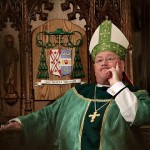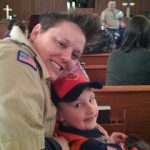Compiled by Richard Ammon
GlobalGayz.com
February 2012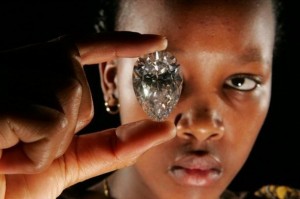
Introduction
Male same-sex sexual acts are illegal in Lesotho—a sharp contrast to South Africa, which completely surrounds the country. Lesotho law does not address sexual orientation. LGBT people face discrimination in employment, housing, access to health care, access to education, or other areas. Homosexual conduct is taboo in the society, and is not openly discussed. But that is now being challenged.
Following here are five reports that offer some insight into LGBT life in Lesotho.
(1)
First, some Good News About Gay Life in Lesotho:
LGBTI Support Group Registered in Lesotho
By Fiona Coyle, HIV & AIDS Officer, UNDP
In what has been described by activists as a significant milestone for the Lesotho Lesbian, Gay, Bi-sexual, transgender and Inter-gender (LGBTI) communities, November 2010 saw the registration of MATRIX support group as a Non-Profit Organisation by the Lesotho Law Office.
Men who have sex with Men (MSM), Women who have sex with Women( WSW) and other people who identify as LGBTI are an important and undeservedly vulnerable population in Lesotho.
Across the African continent there has been an increasing recognition of the high HIV risks among these key populations. Moreover, these HIV risks are in part driven by stigma and discrimination. While discrimination affects physical and mental well-being, it also impedes access to HIV prevention, testing and treatment.
These types of barriers lead to a diminished confidence in the Health system and a less than optimal and often nonexistent engagement by LGBTI community members.
MATRIX Support Group was established in 2008 March when a group of ten gay friends came together and formed what was known as the ‘discussion group’. Members came together to discuss the issues that affected them as homosexuals living in Lesotho and how to further develop as a functioning organization.
Speaking on the registration, a MATRIX member states “Symbolically this is an important achievement for our organisation. We are the first LGBTI organisation in Lesotho, and this is empowering for all our members. Secondly, this recognition opens up more opportunities for us as an organisation, we are obliged to fight for the rights of our members and ensure they live in a society free of discrimination… (Read the full story)
(2)
The Secret Lives of Lesotho Gays and Lesbians
Behind the Mask
March 10, 2009
(This article was written a year before MATRIX registered in November 2010)
By Lesego Tlhwale (BTM intern)
The myth that homosexuality is unAfrican seems to be debunked each day as more and more homosexuals surface in different countries of this continent. With the Kingdom of Lesotho being famous for adherence to its Basotho traditions, many mistook it for a country free of gays.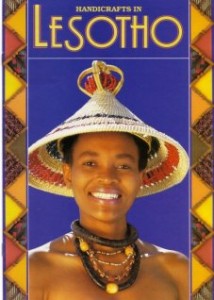
However, recently gay and lesbian people have surfaced there, with a short term goal of fighting for recognition, not only from society but also from the ruling class. Even though there are no laws criminalising homosexual conduct in Lesotho many homosexuals live secret lives, fearing possible discrimination from their families and community, should they come out.
Talking about being a lesbian in Lesotho, 30 year old Kgati Maila* who resides in one of Lesotho’s rural villages says people in her community, influenced by cultural beliefs, view homosexuality as an inhuman act of evil. Even sharing her story with Behind the Mask seems to be difficult for this working class woman, who has been in the closet for more than 13 years. She however discloses that she shares a house with her partner who is 40, and the partner’s 19 year old daughter, while her 13 year old daughter stays with her grandmother.
“Our life is normal even though it is a secret. Our families suspect that we are lesbians but they are not sure, even though there are rumours that we might be dating”, Maila says. Asked about the time she discovered her sexuality, she says “After having a child at 17, I realised that I was attracted to women and since then I had no doubt about my sexuality.”
Even though she says she is not proud of her behaviour, Maila explained how she and her partner often have misunderstandings that lead to her [Maila] being violent towards her. “She would even seek protection from the police and elderly people in the area.”
This behavior has been one of the reasons that led to her being taken to the chief, by her partner’s family, to clear her name in 2007. “They wanted me to say in front of the chief that I am not a lesbian. They even instructed me to stop seeing my partner and said I should move back home, since it is not acceptable for me to share a house with a woman.”
According to Maila, discrimination of homosexuals is not widespread in Lesotho. She says this could be because many gays and lesbians are staying in the closet, only out to their peers.
Maila is not the only one, Thabiso Kikume* is a gay man, one of many homosexuals in that country. He coordinates a one-year-old unregistered LGBTI support group called Matrix Support Group in the country’s capital Maseru. The group was, according to Kikume, started by a group of gay men from the US and some from Maseru, who saw a gap in the country regarding the issues around LGBTI community.
The group meets secretly every Saturday, at a local church, to discuss issues affecting homosexuals in the area. “Part of the discussions is about identity crises amongst lesbians, as they are women and are expected to dress in a certain respectable way. We also discuss health issues.” He adds that the group is looking at registering as a gay organisation and approaching the government, with a view to have the LGBTI community recognised in Lesotho. (This was done in November 2010.)
While it has not done much on the issue of HIV and AIDS, the group is planning a workshop this week which will teach the LGBTI community about “dangers of HIV/AIDS amongst same-sex relationships. Part of the workshop will cover prevention strategies for homosexuals against HIV/AIDS and STIs.” He added that invitations to the workshop are mainly done by word-of-mouth as they don’t want to make group members uncomfortable by inviting the community at large. We are hoping for a great turnout even though many gay people are in the closet”, Kikume concluded.
(3)
Gays Are Also God’s Children–Fighting Back Against Homophobia
Lesotho Times
May 18, 2011
By Ntsebeng Motsoeli
Maseru–Simon Nkoli was a hero among the gay community in South Africa. But he died young, at the age of 41, of an Aids-related illness in 1998. Today, 13 years after his death South Africa and the region recognises the key role he played in advancing the rights of gays. A street in Pretoria has since been named after Nkoli in honour of the work he did.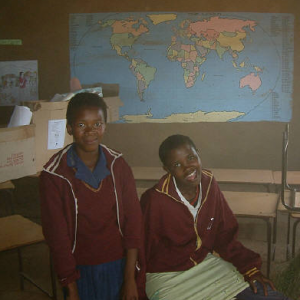
South African is the only country in Africa that recognises gay rights. Gays are regarded as part of society and their sexual rights are protected by a constitutional clause.
But for gays in Lesotho life is tough. They say they are yet to enjoy such rights in their own country. They complain of discrimination by ordinary people, government officials and even family members.
All this because of their different sexual orientation, they say. Gays in Lesotho say they are often the subject of verbal barbs with people calling them “moffis” and “stabane”, highly offensive terms.
But the gay community in Lesotho is preparing to fight back. The first step, they say, is by conscientising the government and local communities that they are normal people who just happen to be attracted to people of the same sex. “Gay rights are human rights. We do not advocate special gay or lesbian rights. We want to be respected for who we are,” says Monaheng Khoele, the programmes manager at Matrix support group, an organisation for lesbians, gays, bi-sexual, transgender and inter-gender individuals in Lesotho that was started in November 2010.
Khoele was speaking to about 200 lesbians and gays who were gathered in Sterkinekor Cinema 4 at Pioneer Mall in Maseru on Tuesday for the screening of a documentary titled ‘Simon and I’. The documentary celebrates the life of gay activist Nkoli. The screening of the documentary was part of activities organised by Matrix to mark the International Day Against Homophobia. The day is now observed every year on May 17.
Khoele says it was on this day when the World Health Organisation (WHO) removed homosexuality from a list of disabilities. It is no surprise that most gays in Lesotho and South Africa identify with the character of Simon in the documentary.
But unlike Simon, a free-spirited individual who spoke freely at rallies and in the media, most gays in Lesotho are still living in the closet. “Sexual orientation is a passion. It comes from the inside. Homosexuals are not crazy people. We were born this way and we are proud of who we are,” says Tampose Mothopeng, a gay activist with Matrix.
According to information from Matrix, Lesotho is generally a hostile environment for gays. For instance most gays have no access to basic health services, even when they are sick. This is precisely why individuals like Simon succumbed and still die from Aids-related illnesses.
A study of sexual minorities in Lesotho conducted last year reported that homosexuals were at high risk of contracting HIV. “It is clear that there exist men who have sex with other men and women who have sex with other women in Lesotho who report high-risk HIV practices,” the report says. “MSM in Lesotho are at high risk for HIV infection and human rights abuses. Evidence-based and rights-affirming HIV prevention programmes supporting the needs of MSM should be developed and implemented.”
The report says sexual minorities were also failing to access HIV prevention programmes. It is even harder for gays and lesbians in Lesotho to report cases of abuse to the police. Most suffer in silence, the report says. “Lesbians are being raped by men who want to prove to them (lesbians) that they are not men,” Khoele told the Lesotho Times. Most cases of physical abuse of sexual minorities go unreported, he says. “We live in fear of being attacked by people who do not understand homosexuality. It is a taboo in our communities. We suffer discrimination even in our homes,” Khoele says.
He says it is even difficult to walk in the streets without some people passing suggestive and offensive comments about their appearance and sexual orientation. But the gay community in Lesotho says it now wants to speak out more forcefully against these abuses. The days of living in the closet are over, they say. “It’s high time we confront our challenges. We feel we have been left out for too long. That is about to come to an end. We are going to make ourselves heard from now on,” said another gay activist.
He however declined to be named in one of the clearest indications of the difficulties and challenges for the gay community. He was speaking in an interview following the screening of the documentary at Pioneer Mall on Tuesday. “We are all God’s children. We do things and pray like everybody else,” he said.
He however said the violence targeted at sexual minorities must stop. He also said the government must provide enough customised condoms for gays to stop the transmission of HIV.
Churches, most of which teach an anti-gay gospel, must al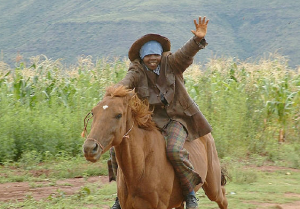 so learn to accept that they too are also God’s children, he said
so learn to accept that they too are also God’s children, he said
The principal secretary in the Ministry of Justice and Human Rights Retšelisitsoe Masenyetse says the government is still trying to understand the whole phenomenon of homosexuality. “Lesotho is trying to understand what homosexuality is whether it is a choice or a biological condition. “We have sent a top lawyer to Pretoria who is going to learn more about homosexuality. Once we have learned and understood the practice, we can then make informed decisions on how to help or support them,” Masenyetse says.
Masenyetse says the country’s constitution currently protects the rights of everyone regardless of sexual orientation. “Government depends on the constitution when dealing with every citizen’s rights. It talks about fundamental human rights. Every person is entitled to the right to life and we respect that. That is why we don’t arrest them (homosexuals),” he said.
(4)
Human Rights and HIV
From US State Dept Human Rights Report for 2010
Lesotho is a constitutional monarchy with a population of 1.88 million. Under the constitution, the king is head of state but does not actively participate in political activities. The prime minister is head of government and has executive authority.
The following human rights abuses were reported: killings, torture, and abuse by police; mob violence; poor prison conditions; lengthy pretrial detention, and long trial delays. Societal abuses included abuse of spouses and children; sexual abuse; restrictions on women’s rights; discrimination against women; stigmatization of persons with disabilities and HIV/AIDS; and child labor.
HIV Citizens
There continued to be media reports that children orphaned by HIV/AIDS, persons with HIV/AIDS, and their immediate families were stigmatized. The law prohibits discrimination in the workplace on the basis of HIV/AIDS status. In 2006 the parliament amended the labor code to include an HIV/AIDS workplace policy. Each government ministry or department provided subsidized medicine to its employees with HIV/AIDS, and some provided subsidized food.
Medicine was available to all HIV-positive citizens at subsidized prices at all government hospitals.
Lesotho Defense Forces policy states that a soldier found to be HIV-positive after induction is not retired or separated and is provided counseling and testing, and duties were adapted as appropriate. (http://www.state.gov/j/drl/rls/hrrpt/2010/af/154353.htm)
Also see:
–Bibliography on LGBT life in Lesotho from Richard Ramsay, University of Calgary, Canada
–MSMGF HIV summary of Reports for Lesotho
–“Mummies and babies” and friends and lovers in Lesotho (1985):
“Young girls in the modern schools develop close relationships, called “mummy-baby,” with slightly older girls. Sexual intimacy is an important aspect of these relationships…”
-Singing and Dancing from Lesotho on YouTube



